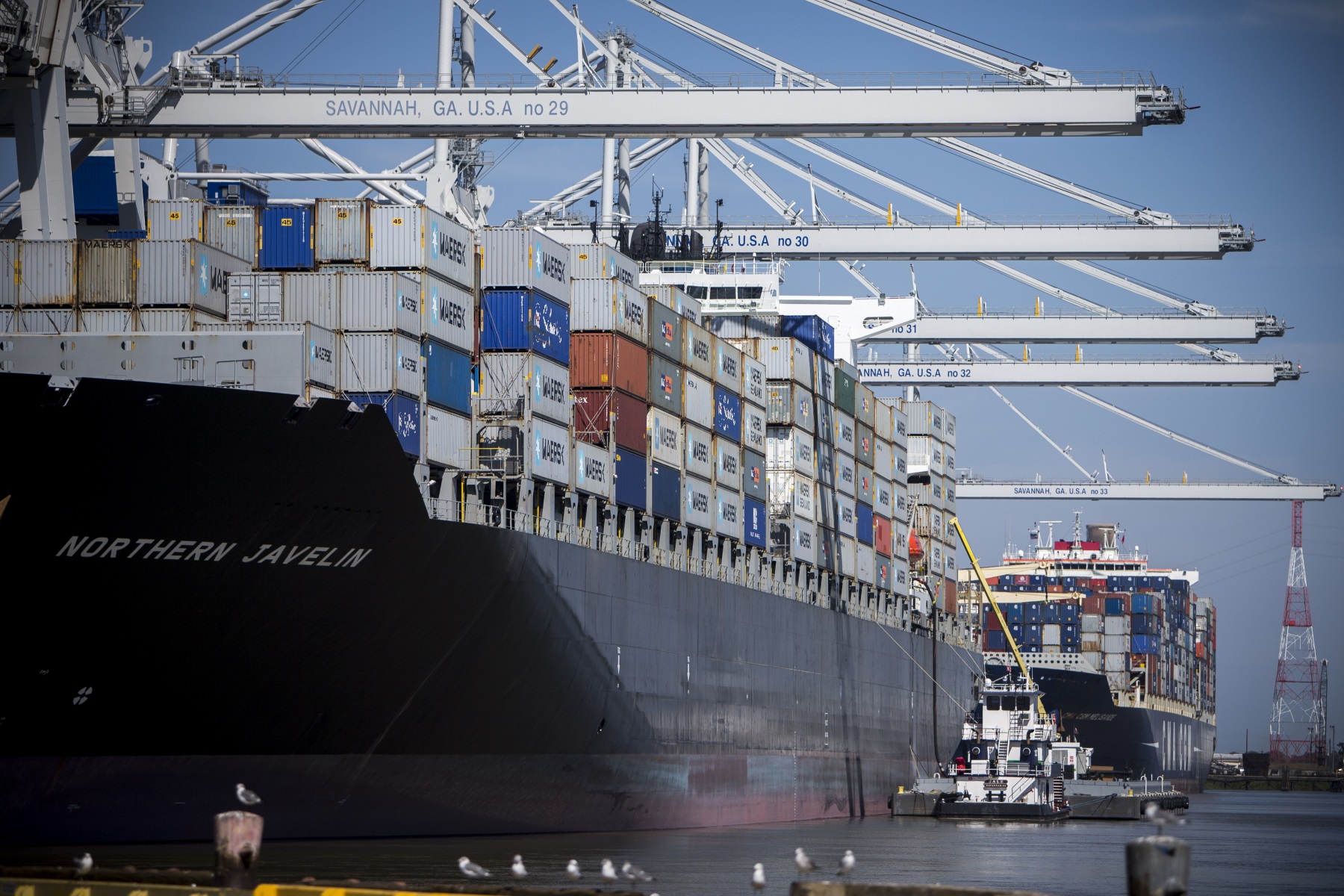It’s Hard To Know How Chinese Tariffs Could Affect Ga. Businesses

It’s unclear what impact the Chinese tariffs may have here in Georgia. Fewer exports could mean less traffic in the Port of Savannah, for example. According to the Georgia Department of Economic Development, China is Georgia’s third-largest export market.
Stephen B. Morton / Associated Press file
China has slapped $3 billion worth of tariffs on some U.S. imports. It’s unclear how the penalties could impact businesses here in Georgia.
The list of 128 items includes steel and aluminum products, fruit, nuts and meat.
Two of Georgia’s biggest exports — peanuts and pecans — aren’t explicitly named on the list of 128 products. However, they could be included in some general categories, like “assorted” or “fresh’”nuts.
If so, that could spell trouble, says Jacobus Boers, assistant dean for international engagement at Georgia State’s Robinson College of Business.
“A lot of those exports of pecans and peanuts go to Asia,” Boers says. “And so, if the China trade gets affected, we could see less exports, and that could potentially have the impact of jobs being affected in that space.”
Boers says Georgia could be affected by products exported by other states, like pork.
“It’s a question as to whether or not some of the pork that comes from the pork-producing states are going out through Savannah,” he says. “We may see trade impact that way.”
Fewer exports could mean less traffic in the Port of Savannah, Boers says.
According to the Georgia Department of Economic Development, China is Georgia’s third-largest export market. Still, Raymond Hill, a lecturer at Emory’s Goizueta Business School, doubts the tariffs will make much of an impact here.
“It’s gonna have a little bit of significance probably for, you know, people who grow almonds in California, but even then we’re talking about a 15 percent tariff, so it probably won’t have that much effect, even on the products that were selected,” Hill says.
Hill says the tariff standoff could pave the pathway for international trade talks.
“We’ve put some tariffs on Chinese products,” he says. “They feel compelled to do something in response. It’s not very much, and it’s probably a preliminary to some round of negotiation over Chinese trade policies.”
Hill says officials should take steps to ensure the situation doesn’t become a complicated trade war involving more entities, like the European Union.








